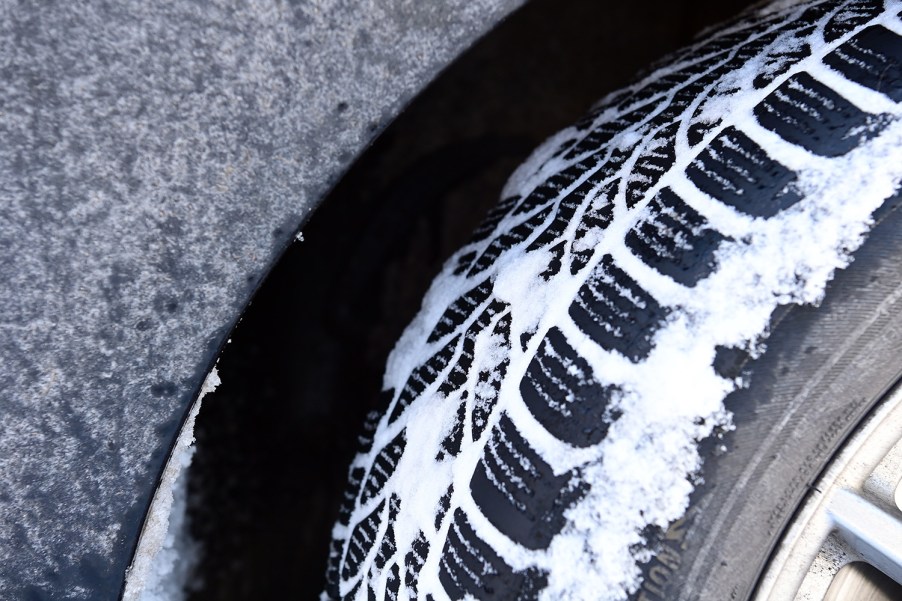
If You Have Winter Tires on Your Car, Take Them off Immediately
It’s no secret that tires can be a bit confusing. Whether they’re winter, summer, all-season, performance, all-terrain, or any other category, it’s hard to know what tires you should or should not have on your car. However, spring has sprung, and one thing is for sure, you should not have winter tires on your car unless it’s winter. In fact, in some states, it may even be illegal.
Winter Tires are not meant for use in warm and dry weather

According to Les Schwab, winter tires use a special rubber compound that’s made solely for maximum grip in snowy and icy conditions. The compound is very soft, which allows the tires to stay pliable in cold conditions where all-season or summer tires may harden. Ideally, winter tires are only for times when temperatures are 45 degrees or below.
Additionally, winter tires are not designed to last as long as all-season or summer performance tires. So, keeping them on your car year-round may just result in having to buy new tires more frequently. Instead, you could use the same set of tires for years if you install and remove them with the change of seasons.
Winter tires also have a much higher rolling resistance than all-season variants. So, keeping your cold-weather shoes on your car may drastically reduce your fuel economy. So, not only will you be spending more money on tires, but you’ll also spend more at the pumps.
All-season tires have a much harder rubber compound. They’re designed not only to withstand hot weather but also to last longer. Additionally, all-season tires have much different tread patterns than winter tires. They’re designed specifically for gripping a dry or wet road without any added slipperiness.
So, while winter compound is great at what it does, they should only do it in the winter. On the contrary, having winter tires in warm weather seasons can actually negatively impact your car’s handling and traction. The soft rubber compound has a lot more play. So, acceleration, cornering, and even braking take substantial performance hits. In essence, winter tires in the wrong conditions can be quite dangerous.
Additionally, depending on your state, running studded tires year-round could be illegal, according to Tirebuyer.
It’s always important to have the right tire for the job
Running the right rubber for the road is imperative to both your wallet and your safety. Often, shops that sold you winter tires will swap your them out for free. Alternatively, many people purchase a second set of cheap steel wheels and keep their winter tires mounted on them. That way, when winter rolls around, they can just swap the wheels over.
Whether you’re looking for a sporty handling experience for the race track or windy roads or just want a dependable and affordable all-season, it’s imperative to choose the right tires. However, most tire companies make it quite easy by specifically designating their intended use.
So, what are you waiting for? Make sure you’ve got the right tires for the job. If you don’t, keep scrolling to see what tires suit your needs, whether you’re after fuel economy or longevity!



